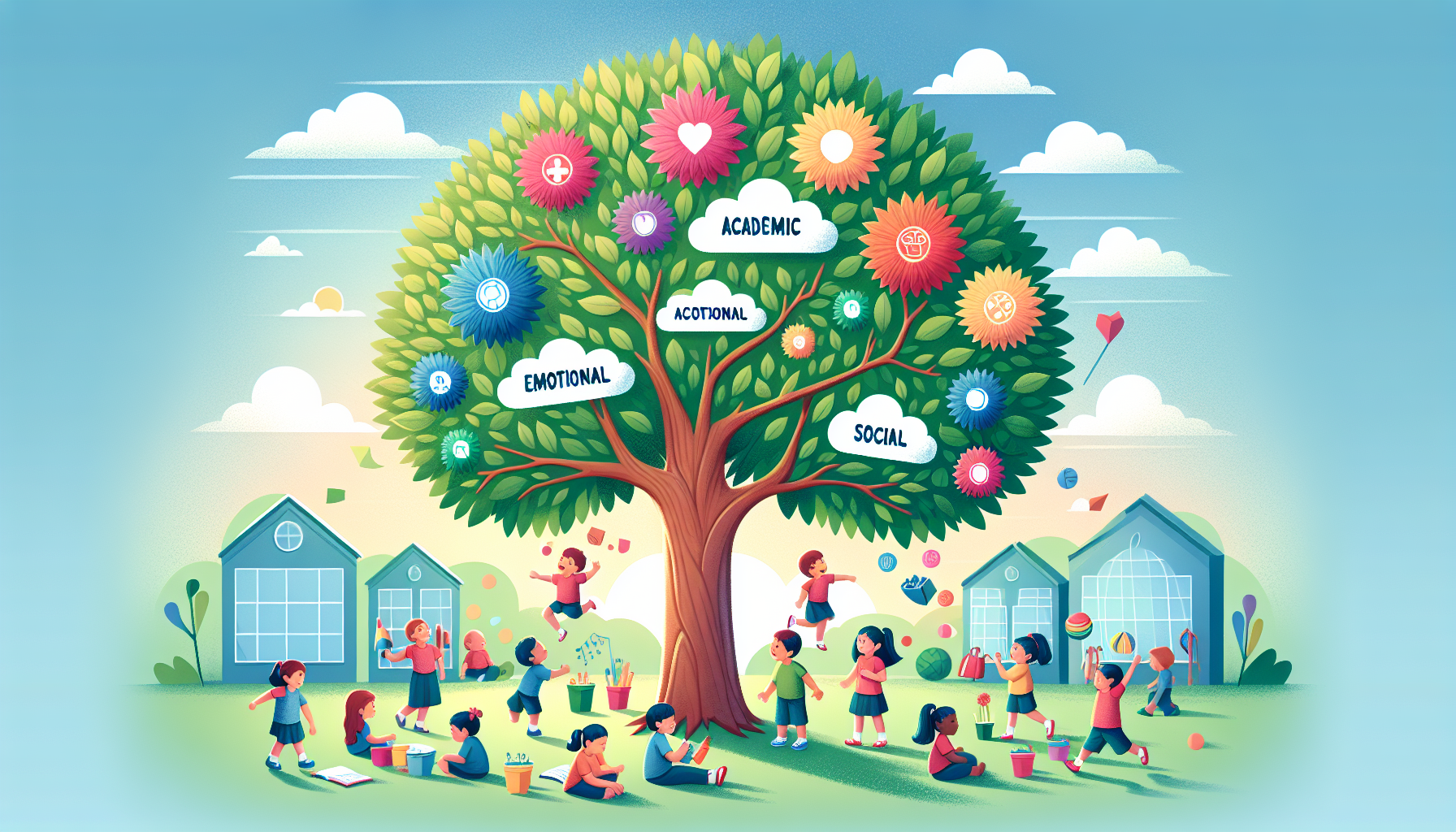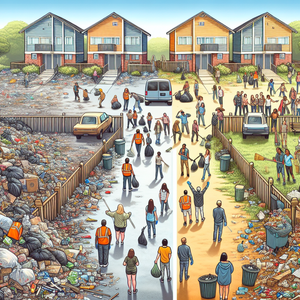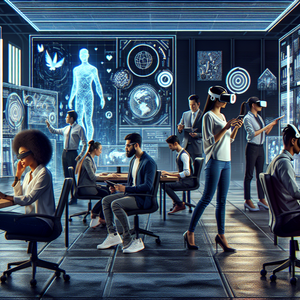The Intersection of Education and Care: Shaping Future Careers for Children in Texas

Social-emotional learning (SEL) has emerged as a vital component of education, addressing the emotional and social needs of students. Educators in Texas are integrating SEL into their curricula, creating an environment where children can develop resilience, empathy, and effective communication skills. This approach recognizes that emotional intelligence is just as critical as academic prowess in preparing students for future careers. For instance, schools are implementing programs that teach students to recognize and manage their emotions, set positive goals, and establish supportive relationships. One notable example is the work done at a Houston-based elementary school, where teachers have incorporated SEL into daily routines. By using role-playing exercises and group discussions, students learn to navigate social situations, enhancing their interpersonal skills and preparing them for future careers that require collaboration and emotional intelligence. Research also supports the efficacy of these programs, with studies indicating that students who engage in SEL demonstrate improved academic performance and better behavior in school.
STEM Education: Building a Foundation for Future Innovators
In a world increasingly driven by technology, STEM (Science, Technology, Engineering, and Mathematics) education is more critical than ever. Texas educators are actively promoting STEM programs that encourage students to explore these fields from an early age. Schools are forming partnerships with local industries to provide hands-on experiences that connect classroom learning to real-world applications, thereby fostering a skilled workforce. A prime example is the partnership between a Dallas school district and a local engineering firm, which allows students to participate in design challenges and internships. This initiative not only sparks interest in STEM careers but also equips students with practical skills and knowledge needed to succeed in these fields. As a result, many students are inspired to pursue careers in engineering, computer science, and environmental science. According to the Texas Workforce Commission, careers in STEM are projected to grow significantly in the coming years, highlighting the importance of early exposure to these disciplines.
Arts Integration: Fostering Creativity and Innovation
While STEM education is essential, the role of the arts in shaping future careers is equally significant. Educators in Texas are recognizing the importance of integrating the arts into the curriculum, allowing students to express themselves creatively while developing critical thinking skills. Programs that blend art, music, and theater with traditional subjects foster a holistic approach to education. A compelling example of this integration can be found in an Austin high school that offers a unique program combining visual arts with environmental science. Students create art projects that raise awareness about environmental issues, encouraging them to think creatively about solutions. This program not only cultivates artistic talents but also ignites a passion for environmental stewardship, potentially leading students to careers in environmental advocacy, design, or sustainability. The National Endowment for the Arts reports that students engaged in arts education are more likely to pursue careers in creative industries, further underscoring the importance of this integration.
Real-Life Success Stories
The impact of these innovative educational approaches is evident in the success stories of students who have thrived in their chosen paths. Take, for instance, Maria, a student from San Antonio who participated in a robotics program at her school. The hands-on experience and mentorship she received fueled her interest in engineering. Today, Maria is pursuing a degree in mechanical engineering, driven by her early exposure to STEM education. Similarly, James, an aspiring musician from Dallas, credits his school’s arts integration program for igniting his passion for music production. The program not only honed his musical skills but also introduced him to the business side of the music industry. James is now working on launching his own music label, demonstrating how creative education can pave the way for entrepreneurial endeavors. These stories exemplify how tailored educational experiences can lead to remarkable career trajectories.
As Texas educators continue to shape the future of children’s careers, their commitment to fostering social-emotional learning, STEM education, and arts integration will undoubtedly yield a generation of well-rounded, innovative individuals. By equipping students with the skills and experiences they need to navigate the complexities of the modern world, educators are not only nurturing future professionals but also cultivating empathetic leaders and creative thinkers. The intersection of education and care is vital in preparing the next generation for success, ensuring that they are not only capable but also compassionate contributors to society. As we look to the future, it is clear that the efforts of Texas educators will have a lasting impact on the careers of children for years to come, enabling them to thrive in an ever-evolving landscape. In this way, Texas stands as a model for how education and care can converge to create pathways to success for all students.
Social-Emotional Learning Specialist
school districts, educational nonprofits, community organizations
Job Description
Develops and implements SEL programs tailored to student needs, focusing on resilience, empathy, and communication.
Collaborates with teachers and parents to create supportive learning environments that promote emotional intelligence.
Requires a background in psychology, counseling, or education, along with experience in curriculum development.
STEM Education Coordinator
school districts, educational foundations, STEM-focused nonprofits
Job Description
Designs and oversees STEM initiatives that engage students through hands-on projects and industry partnerships.
Evaluates program effectiveness and adapts strategies to improve student interest and performance in STEM subjects.
Needs a background in education or a STEM field, along with experience in project management and curriculum design.
Environmental Education Specialist
environmental organizations, schools, government agencies
Job Description
Develops educational programs that integrate environmental science with creative arts, fostering student awareness of sustainability issues.
Conducts workshops and training sessions for teachers on best practices for environmental education.
Requires expertise in environmental science and education, along with skills in program development and community outreach.
Creative Arts Integration Consultant
educational institutions, arts organizations, curriculum development companies
Job Description
Advises schools on how to effectively blend arts education with core subjects to enhance student engagement and learning outcomes.
Provides training and resources for teachers to implement arts-based strategies in their classrooms.
Requires a background in arts education or curriculum development, along with experience in educational consulting.
Career Pathways Advisor
high schools, community colleges, workforce development organizations
Job Description
Guides students in exploring career options related to their interests in STEM and the arts, including internships and mentorship opportunities.
Works closely with local businesses to facilitate partnerships that provide real-world experiences for students.
Requires knowledge of career counseling, educational pathways, and local industry trends, along with strong interpersonal skills.


